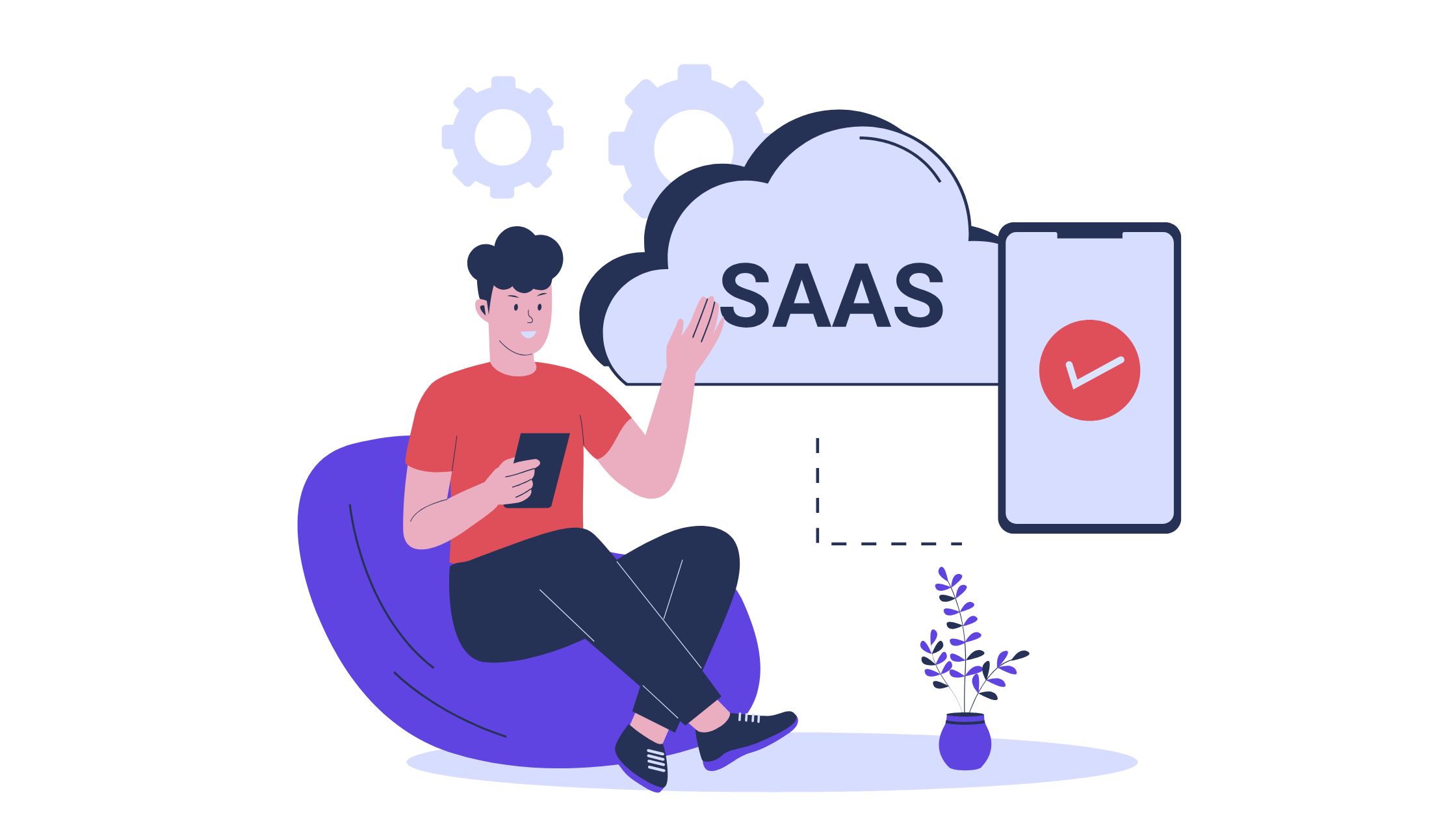Small businesses today need efficient, affordable solutions to manage their operations and grow. Software as a Service (SaaS) apps have become essential tools by offering cloud-based software that is easy to access and use. SaaS app development services help create tailored solutions that eliminate the need for costly installations and maintenance, allowing businesses to save time and money. These apps provide flexibility, scalability, and automatic updates, helping small businesses stay agile and competitive.
Additionally, SaaS apps support collaboration by enabling teams to work together from anywhere. In this article, we will explore the many benefits SaaS apps offer to small businesses and how SaaS app development services can drive productivity, reduce costs, and simplify daily tasks.
What Are SaaS Apps?
SaaS apps are software solutions hosted online, accessible through the internet without the need to install programs locally. Unlike traditional software, which requires purchasing licenses and managing updates, SaaS apps let users pay subscription fees and access features anytime from any device. This model fits perfectly with the needs of small businesses that value flexibility and cost control.
Lower Costs and Budget-Friendly Solutions
Small businesses usually operate with tight budgets. SaaS apps remove the need for expensive hardware or software licenses. Instead, businesses pay predictable monthly or annual fees. This helps avoid large initial costs and reduces IT expenses such as maintenance and upgrades.
Additionally, SaaS providers handle security, backups, and updates, which means small businesses save time and money on managing software themselves. This cost-effectiveness makes SaaS a smart choice for businesses just starting or looking to grow without overspending.
Easy Access from Anywhere
SaaS apps run on the cloud, meaning employees can log in from any device connected to the internet. This flexibility supports remote work, which is increasingly important for small businesses balancing office and home environments.
With SaaS, teams can collaborate in real-time, update projects instantly, and access critical information outside the traditional workplace. This ease of access boosts productivity and ensures business continuity during unexpected events or travel.
Working with a top mobile app company can help businesses customize SaaS apps to better support mobile workforce needs and improve user experience on smartphones and tablets.
Quick Setup and Scalability
Small business owners want solutions that start working fast. SaaS apps often come with ready-to-use features and require minimal setup. Users can get started quickly without waiting for complex installations or technical support.
As businesses grow, SaaS apps can grow with them. Companies can add more users, storage, or new features by adjusting their subscriptions. This flexibility ensures that the software remains aligned with business needs over time without costly upgrades or replacements.
Automatic Updates Keep Software Current
Technology changes quickly. SaaS providers regularly update their applications to improve features, fix bugs, and protect against security threats. Small businesses don’t need to worry about downloading patches or managing updates manually.
Automatic updates mean users always access the latest tools and security measures. This reduces risk and keeps businesses competitive by taking advantage of continuous improvements.
Enhanced Collaboration and Communication
Many SaaS apps offer built-in communication tools such as chat, video calls, and shared calendars. These features encourage teamwork by allowing employees to stay connected and share information smoothly.
When teams use the same platform, project coordination becomes easier, deadlines are met, and customer service improves. This boosts overall business efficiency and helps build stronger relationships within teams and with clients.
Integration with Other Business Tools
SaaS apps often support integration with other popular software like accounting systems, customer relationship management (CRM), or marketing platforms. These connections enable data to flow seamlessly between different parts of the business.
By linking various tools, small businesses save time on manual data entry and reduce errors. This creates a smoother workflow and better insights from combined data sources.
Reliable Security and Data Protection
Data security ranks high among small business concerns. SaaS providers invest heavily in protecting their platforms with encryption, firewalls, and regular audits.
By choosing a reputable SaaS app, small businesses benefit from enterprise-grade security without needing dedicated IT staff. Cloud backups also ensure data is safe even if local devices are damaged or lost.
Freedom to Focus on Core Business Activities
By using SaaS apps, small business owners spend less time managing software and technology problems. This allows them to concentrate on what matters most—serving customers, developing products, and growing their business.
SaaS apps simplify complex processes, automate routine tasks, and provide useful analytics to support decision-making. This empowers owners and employees to work smarter and deliver better results.
Customizable Plans Fit Different Business Needs
Most SaaS providers offer tiered pricing with various plans tailored to different business sizes and requirements. This allows small businesses to choose features that match their current needs and budget.
As a business evolves, it can upgrade or downgrade plans easily. This adaptability avoids paying for unnecessary functions and helps keep expenses under control.
Examples of Popular SaaS Apps for Small Businesses
Many SaaS apps have earned a strong reputation among small businesses due to their effectiveness and ease of use. Here are a few common examples:
- Accounting: QuickBooks Online, Xero
- Project Management: Trello, Asana
- Customer Relationship Management (CRM): HubSpot, Zoho CRM
- Communication: Slack, Microsoft Teams
- Marketing: Mailchimp, Canva
These tools help businesses handle essential operations and improve overall efficiency.
Conclusion
SaaS applications provide a powerful combination of cost savings, flexibility, and ease of use that fits perfectly with the dynamic needs of small businesses. From quick access to powerful tools to enhanced collaboration and built-in security, SaaS apps make daily operations easier and help companies grow with confidence.
Small business owners who adopt SaaS technology position themselves for success by freeing up resources, improving teamwork, and staying agile in a competitive market. The benefits are clear—using SaaS apps is a practical, effective way to boost business performance and achieve goals.






